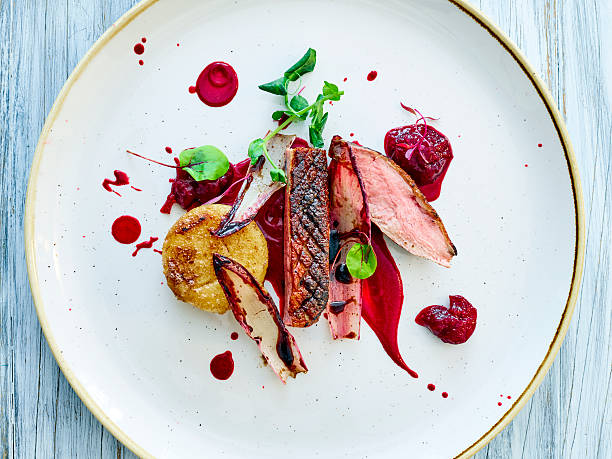The Allure of a Life of Luxury
A life of luxury is often depicted as the pinnacle of success and happiness, a world where opulence and comfort are the norms rather than the exceptions. It conjures images of grand mansions, exotic vacations, high-end fashion, and gourmet dining. But beyond the surface-level allure, what truly defines a life of luxury? Is it merely the accumulation of material wealth, or does it encompass a broader, more nuanced understanding of well-being and fulfillment?
The Essence of Luxury Living
Luxury living is not just about owning expensive things; it's about a lifestyle that prioritizes quality, exclusivity, and an appreciation for the finer things in life. This lifestyle is characterized by a sense of abundance and freedom, where individuals have the means to enjoy the best that life has to offer. From bespoke services and custom-made products to unique experiences that money can buy, luxury living is an embodiment of sophistication and elegance.
The Historical Perspective
Historically, the concept of luxury has evolved significantly. In ancient times, luxury was often associated with nobility and royalty. The Pharaohs of Egypt, the Emperors of Rome, and the Kings and Queens of Europe all lived lives of unparalleled luxury. Their wealth was displayed through grand palaces, extravagant banquets, and lavish clothing. However, luxury was not just about material possessions; it also encompassed a refined lifestyle, including arts, culture, and intellectual pursuits.
Modern-Day Luxury
In the modern era, the definition of luxury has expanded beyond tangible assets to include experiences and services. The luxury market has seen a significant shift towards personalization and customization. High-net-worth individuals are no longer satisfied with generic luxury; they seek unique, one-of-a-kind experiences that reflect their personal tastes and preferences. This has led to the rise of luxury travel, bespoke fashion, private concierge services, and exclusive events.
The Role of Technology
Technology has played a crucial role in shaping the modern luxury landscape. The digital age has brought about new ways for luxury brands to engage with their clientele. From virtual reality tours of luxury properties to personalized shopping experiences using artificial intelligence, technology has made luxury more accessible and immersive. Additionally, social media has become a powerful tool for luxury brands to showcase their offerings and connect with a global audience.
The Luxury Consumer
Today's luxury consumers are diverse and sophisticated. They are well-traveled, highly educated, and have a deep appreciation for craftsmanship and quality. They value experiences over possessions and seek out brands that align with their values and lifestyle. Sustainability and ethical practices have also become important considerations for luxury consumers, who are increasingly aware of the environmental and social impact of their purchases.
The Psychological Aspect
The appeal of a life of luxury is deeply rooted in psychology. Luxury provides a sense of status and achievement, serving as a reward for hard work and success. It also offers comfort and security, creating an environment where individuals can relax and indulge in their desires. However, luxury can also have a more profound impact on well-being, contributing to a sense of fulfillment and happiness when it is experienced in meaningful ways.
Challenges and Criticisms
Despite its many benefits, a life of luxury is not without its challenges and criticisms. The pursuit of luxury can sometimes lead to a superficial and materialistic lifestyle, where individuals measure their worth by their possessions. This can result in a never-ending cycle of consumption and a constant desire for more. Additionally, the luxury industry has faced criticism for its environmental impact and for perpetuating social inequalities.
The Future of Luxury
The future of luxury is likely to be shaped by several key trends. Sustainability will continue to be a major focus, with luxury brands increasingly adopting eco-friendly practices and materials. The rise of the digital economy will also transform the luxury market, with more brands offering virtual and augmented reality experiences. Personalization and customization will remain important, as consumers seek out unique and tailored luxury experiences.
The Importance of Balance
While the allure of a life of luxury is undeniable, it is important to strike a balance. True luxury is not just about material wealth but also about enjoying a high quality of life. This includes good health, meaningful relationships, and a sense of purpose. By focusing on what truly matters, individuals can enjoy the benefits of luxury while maintaining a sense of balance and fulfillment.
Conclusion
A life of luxury is a multifaceted concept that goes beyond the mere accumulation of wealth. It encompasses a lifestyle that values quality, exclusivity, and meaningful experiences. While it offers many benefits, it also requires a mindful approach to avoid the pitfalls of materialism and excess. By embracing a balanced and thoughtful perspective, individuals can truly enjoy the luxury and create a fulfilling and enriched life.
.jpg)


.jpg)
